To fight scams, banks and the authorities now have more control over customers' accounts. How do we strike a balance between protection and overreach?
Experts say that consumers are likely to face even tighter controls but as long as safeguards are clear and proportionate, with a proper avenue for recourse, there is no need to be concerned.
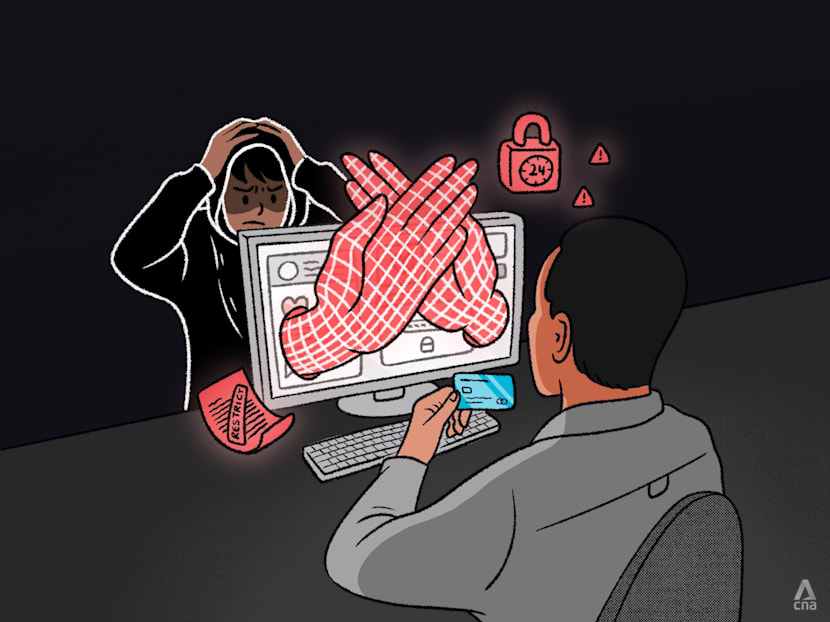
Some consumers feel the authorities are being overly cautious and argue that tighter safeguards are only meant to protect a small pool of naive individuals, at the detriment of everyone else. (Illustration: CNA/Nurjannah Suhaimi)

This audio is generated by an AI tool.
When 29-year-old Kenneth Lee noticed an investment opportunity in a Telegram channel earlier this year, it appeared legitimate enough.
At first, he made small transfers of S$500 or S$1,000 – and even saw small "profits" reflected in the app. Encouraged, he sent larger amounts of S$5,000, S$10,000, and finally larger sums of S$20,000.
Over two months, he had transferred close to S$165,000 – his entire life savings. Then the chat group disappeared and the money vanished.
"If the bank had just called me or paused any of the transfers, I'd have been super grateful," said Mr Lee, a marketing professional.
He added that the slew of measures introduced this year to curb scams are necessary given how rampant scams have been as of late.
"It's getting out of control."
While individuals like Mr Lee are glad for added protections, some consumers feel the authorities are being overly cautious and argue that such safeguards are only meant to protect a small pool of naive individuals, at the detriment of everyone else.
Among their gripes: the new safeguards are troublesome and the 24-hour delay or sudden transaction blocks can be disruptive for people making urgent or legitimate transfers.
Then, there's also the issue of what kind of controls banks and authorities should have over personal accounts.
Mr Rain Tan, 48, said he understands there is merit for scam prevention but finds it "too broad a brush". The civil servant said he has savings in fixed deposits and the safeguards make it cumbersome to move large deposits between banks.
"It's almost impossible for me to switch banks easily after my fixed deposit expires," he said. "My daily transfer limit is capped at S$200,000, so it takes several days to move my money, with cooldowns and waiting periods in between."
He suggested that the bank should have a pre-approved or whitelist of payees that go through stringent checks, and these customers should be exempt from these measures.
"Most of the time, people – myself included – are just transferring money to their own accounts in another bank. Can you imagine how many days it would take to move, say, half a million, even if the other account is in my name?"
These latest powers given to Singapore banks and the police to intervene when they detect potential scams comes after much public consultation and debate and almost as a last resort to get the upper hand over scammers.
Like many other countries globally, the nation has been grappling with an uptick in scams for several years.
Scams ranked among the top crimes in Singapore for the last four years – in the first half of this year alone Singapore residents lost S$456.4 million to scams.
A shared responsibility framework was first announced back in February 2022 after close to 800 OCBC customers lost S$13.7 million.
The following year the Monetary Authority of Singapore and the Infocomm Media Development Authority started gathering feedback for the framework which aims to strengthen the direct accountability of financial institutions and telcos to customers for losses incurred from phishing scams.
The public consultation paper captured the suggestions of several members of the public on making financial institutions responsible for fraud surveillance and detection and block potential fraudulent transactions.
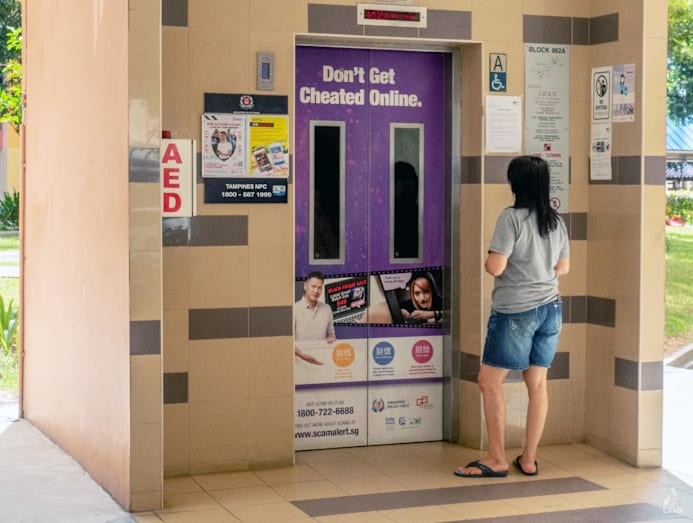
In January, a new law was passed providing the police with powers to order banks to restrict the banking transactions of potential scam victims.
The Protection from Scams Bill came into force in July and allows police to issue Restriction Orders that temporarily limit access to a person's bank account if they believe the person is part of an ongoing scam.
These restriction orders will suspend money transfers, the use of automated teller machines and all credit facilities, although individuals will still be provided access to their monies for daily living expenses.
Such orders can be issued for a maximum of 30 days at the outset and each order may be extended up to five times if authorities deem it necessary.
Just earlier this week, a new anti-scam measure was also introduced which allows banks to hold or reject transfers from accounts with balances of at least S$50,000 and if withdrawals over 24 hours amount to more than half of the total funds.
During the 24-hour cooling period, customers who realise they have been scammed can then cancel the transaction. If the transactions are legitimate, the funds will be released after the cooling period.
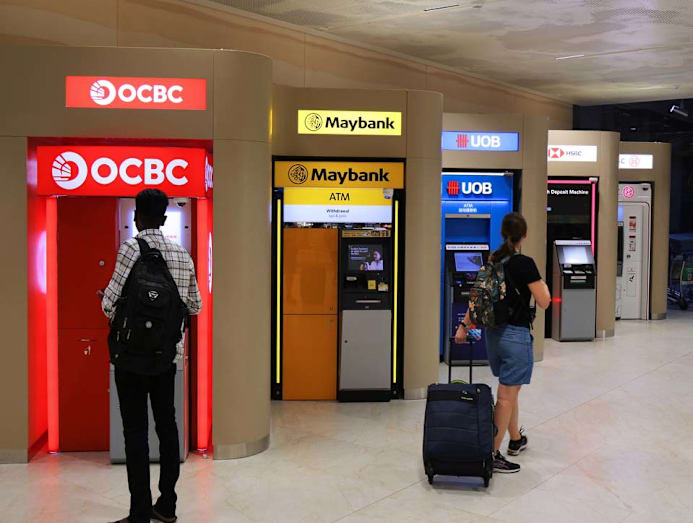
LESS COAXING, MORE CONCRETE WAYS TO HELP: BANKS
Banks said that increasing their powers to keep scams at bay is absolutely necessary given the proliferation of artificial intelligence and deepfake technology.
The modus operandi of scammers is continually evolving and at a rapid pace, even fooling those who are digitally savvy, they said.
And without such measures, their hands are tied even when they are 100 per cent certain their customers are being drained of their funds.
Mr Sukhvinder Singh, head of digital banking at Maybank Singapore, said that before the new laws took effect, frontline staff at the bank often felt legally constrained from stepping in.
Maybank staff would encounter customers who were "absolutely convinced" they couldn’t be scammed and became defensive when questioned about their transactions.
Some customers even threatened to close their accounts or post complaints on social media if their withdrawal requests weren’t processed, he added.
"These experiences were incredibly challenging because, at the time, the bank had limited legal grounds to delay or stop a transaction without the customer’s consent," said Mr Singh.
Mr Raymond See, a member of DBS's Anti-Scam team, said even now with new laws in place, defensive customers push back and lash out at his team, insisting that a transfer be approved.
"We have to stay firm and not let the transfer go through, because our goal is to save as much of the customer's money as possible," he said, adding that no amount is too small to save once a scam has been identified.
In the end, he said, "quite a number of customers" – even those who argue – call the bank within the 24h window to cancel the transactions themselves.
"The 24-hour period gives customers a cognitive break ... a chance to step back, think and sometimes talk to someone they trust before proceeding," said Mr See.
Banks acknowledged that the new measures may seem restrictive but said they were in place to ultimately protect consumers.
Mr Singh said that safeguards need to "strike the right balance between protecting customer rights and preventing irreversible losses".
Mrs Ong-Ang Ai Boon, the director of The Association of Banks, said that measures have already yielded positive results with S$78 million of loss monies averted in the first seven months of this year.
"While these measures may introduce more friction, consumers' protection is a priority," she said.
In response to queries from CNA TODAY, the Police said that as of September, they have issued six restriction orders to banks to restrict the banking transactions of six individuals.

DO THESE SAFEGUARDS REMOVE PERSONAL AGENCY?
While authorities and banks see a clear-cut need for such measures to combat scams and monetary losses, the laws protecting potential scam victims have sparked debate over whether financial institutions and the police are being given too much control over people's money.
Some countries have employed similar tactics, much to the dissatisfaction of citizens.
In Thailand, the cyber police announced in September that they would revise the criteria for freezing bank accounts after a public outcry from people whose accounts were locked despite having no links to scams.
The country's Cyber Crime Investigation Bureau said it had received numerous complaints from vendors and citizens who found their accounts frozen even though they had not allowed their accounts to be used as mule accounts.
In Singapore, despite the public consultation and news articles on the proposed framework, many were still caught off guard by the new powers given to banks and authorities.
Associate Professor Hannah Yee-Fen Lim from NTU said it was likely that the consumers may have had "big picture knowledge" of the consultations, but may not be aware of the minute details.
When the Protection of Scams Bill was debated in Parliament in January, some Members of Parliament (MPs) reflected these concerns.
Member of Parliament for Yio Chu Kang SMC, Mr Yip Hon Weng, said that while the measures were necessary and a timely step to address the scam crisis, it is also "highly intrusive" because it "removes personal agency" by restricting access to accounts.
Mr Gerald Giam, Workers' Party MP for Aljunied GRC, similarly said that while the Bill is an important step towards "combating this scourge", it introduces a significant change to the legal relationship between banks and their customers.
Speaking to CNA TODAY, he said that to truly combat scams what Singapore needs is systemic safeguards such as real-time fraud detection for digital wallets, stronger "Know Your Payee" checks, and a centralised scam database.
Ms Tin Pei Ling MP for Marine Parade-Braddell Heights GRC meanwhile said that while the interventions are "swift and strong", the devil is in the details when it comes to implementation and avoiding false positives which, if happen, could inconvenience users.
Experts acknowledged that added checks and closer monitoring create more steps for customers and make banking less convenient, but at this point in Singapore's fight against scammers, they are necessary given the magnitude of losses by victims.
Mr Choon Hong Chua, who is a senior director at Moody's which provides risk management data and analytics said: "This is a necessary evolution in managing systemic risk ... it achieves a fine balance between providing necessary safeguards and maintaining customer convenience."
As to whether these new moves remove an individual's autonomy when it comes to managing their money, experts disagreed that they do, even if it might appear that way to some.
They said that the new rules only give banks "just slightly more control" to serve as "preventive brakes" so it's harder for funds to leave the jurisdiction, which would then be impossible to recoup.
Even if consumers find their accounts frozen over flagged transactions, they still have control over their regular payments such as GIRO deductions, standing instructions, and transactions involving recognised billers, said Associate Professor Kelvin Law from Nanyang Technological University's Nanyang Business School.
Associate Professor of Finance Mandy Tham from Singapore Management University (SMU) said that moves should not be viewed as paternalistic but more as a cultural shift towards prevention rather than reaction in financial regulation.
She added that this was understandable given how digital risks associated with managing our wealth have risen.
Singapore, in particular, has seen increased wealth among its ranks, the widespread adoption of digital banking, and an open financial system where money flows easily and quickly across borders.
"We are becoming more vulnerable to the digital banking risks resulting from a temporary lapse in judgment, at the current ease and speed of online transactions," said Assoc Prof Tham.
"We would all agree that crimes are more easily detected and halted given a three-day window than a three-minute window."
Senior Law lecturer Olivine Lin from Singapore University of Social Sciences (SUSS) said that the measures are aimed at the "common good", rather than authorities and banks gaining more control over consumer accounts.
"If you really want to protect the most vulnerable in society from losing their hard-earned money, perhaps the only feasible outcome is to adopt an approach that is somewhat paternalistic — to temporarily freeze their accounts for their own good," said Ms Lin.
She said this approach might well be the easiest way to protect Singapore's ageing population from falling victim to scams, given their low levels of digital literacy.
As to whether age-based safeguards could be viewed as discriminatory, experts said there is always the risk of this happening when you "hard-code" age or demographic categories.
Assoc Prof Kelvin Law's suggestion for a fairer approach is to base interventions on behaviour rather than identity — for instance, by flagging unusual patterns such as sudden increases in transfer amounts, first-time payees, or transactions from unfamiliar devices or locations.

Assoc Prof Tham said determining whether there is age discrimination depends on how the frameworks were developed. The framework should be supported by proper data analytics and public consultation, with its methodology made transparent and regularly reviewed to ensure its continued relevance and fairness.
"It may be viewed as discriminatory if we assume that the protection is not equal — that younger people aren't being protected," added Mr Loh.
"But there are good reasons to do so. Many of the high-profile scam cases and the largest losses have involved seniors, as unfortunate, vulnerable victims."
IS SAVING VICTIMS EVERYONE'S RESPONSIBILITY?
The surge in scams has raised a larger question: should society let people face the consequences of their choices, or step in to protect them even if it inconveniences others?
Mr Gabriel Tan, who runs Bamboo Builders, a social enterprise that has programmes on scam awareness and digital resilience, said fighting scams must be a shared effort because "it takes a whole-of-society approach to combat scams".
The 31-year-old added that many people still believe that getting scammed only happens to the gullible or the elderly but that assumption is wrong.
"Our research found that one in two young professionals in Singapore has been scammed. We always think seniors are more vulnerable, but the truth is, everyone is," said Mr Tan.
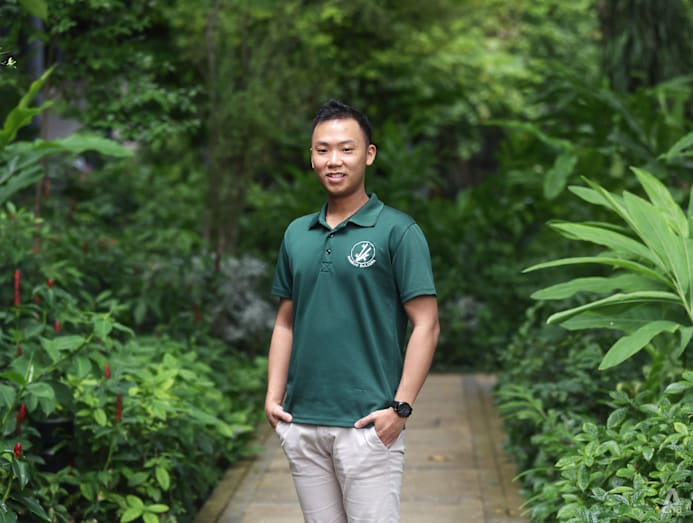
Consumer education director at Trend Micro Ashley Millar said that observation is echoed in their latest 2025 online scams survey, which found that adults in the "sandwich generation" — typically aged 35 to 55 and juggling caregiving and financial responsibilities — are particularly vulnerable.
Trend Micro is a global cybersecurity firm that researches and combats online threats, regularly studies scam trends and consumer behaviour in Singapore.
Mr Millar said scammers exploit individuals' emotions to bypass rational thinking; their tactics trigger strong feelings like fear, urgency or stress, which may lead to even usually cautious individuals making snap decisions.
Ms Lin pointed out that the damage from scams extends beyond immediate financial loss.
"Some scams are so sophisticated that people lose their life savings, not just disposable funds," she said.
She added that when financial institutions fail to protect their most vulnerable customers from losing their savings, it becomes “a cost to society as a whole” because of the erosion of public trust.
"As a society, at the end of the day, it's about that particular common good that we speak about, whereby we have to help one another out," said Ms Lin.
"And in this case, 'helping each other out' means that we may have to deal with the inconvenience of a frozen account from time to time."
ARE WE HEADED FOR TIGHTER CONTROLS?
As scams become more sophisticated, experts said it is often an "arms race" to combat them, where every new safeguard triggers fresh tactics.
Senior law lecturer Melvin Loh from the SUSS' School of Law said when it comes to legislating new offences and measures, the law is often playing catch-up to what has happened.
"We're reacting to something that's already happened, and scammers are already working on the next move."
Ms Lin added that regulators will keep finding new ways to put road bumps in the scammers' path but scammers will keep evolving to get around them.
"The question is whether we can build enough friction into the system without making it feel like control has gone too far," she said.
As for whether we can expect tighter controls, experts have differing opinions. Some believe incremental tightening is inevitable as scammers evolve, while others said the current framework already strikes a reasonable balance.
"There is a genuine risk of overcorrection if protections are rule-heavy and context-light, which can block good payments and erode confidence," said Mr Troy Nyi Nyi, senior vice president and general manager in APAC for fraud-prevention and AML compliance company SEON.
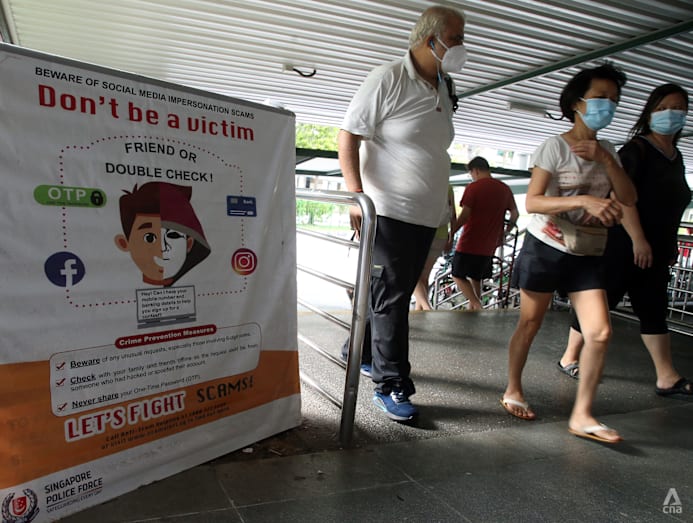
Agreeing, Assoc Prof Law said this overreach occurs when controls "are opaque, indefinite, difficult to appeal, or extend beyond demonstrably risky patterns".
He added that safeguards must remain clear and proportionate, with customers given a proper avenue for recourse.
Mr Troy Nyi Nyi said that the safer approach is to respond to scams in stages, starting with a warning, slowing down moderate-risk transactions, and reserving full blocks only when several warning signs line up.
"This protects people without creating everyday roadblocks," said Mr Troy Nyi Nyi. "It is also fairer, because decisions are explainable and easy to resolve when everything checks out, and customers understand why an extra step was asked for."
Several experts also suggested transparency and periodic reviews to maintaining public trust as Singapore's new scam laws take effect.
Assoc Prof Kelvin Law said quarterly disclosures of key indicators such as false-positive rates, the average time taken to release legitimate urgent payments, and the estimated losses averted would be helpful information to disseminate to the public.
He also proposed setting up an independent audit and redress mechanism to address wrongful delays.
For victims and their families, such controls can never go too far.
Samantha, a communications professional who wanted to be known by her first name, watched firsthand how her father fell victim to a scam.
Her 69-year-old father applied for a S$20,000 loan but ended up sending the scammer more than S$120,000.
Banks, she said, should lower thresholds when looking into dodgy transactions and also share information with each other on known scam victims so they cannot easily open new accounts elsewhere.
"If one bank has already flagged someone as a victim, another shouldn't just let them open a new account online with their SingPass," she said.
She said that while the current measures are good, they still might not save all victims from losing their hard-earned money.
"For people like my dad, who are too deep in denial, no law can really stop them, but at least the system can catch others before they lose everything."








